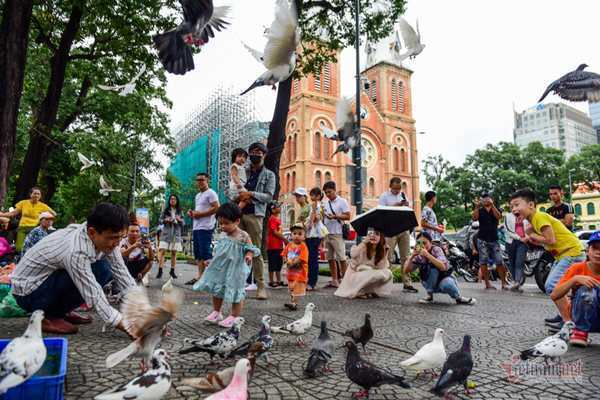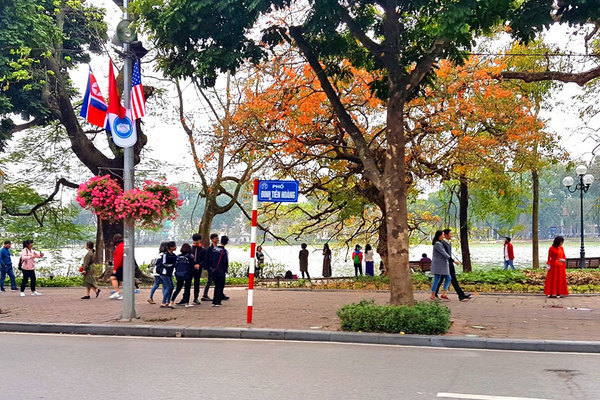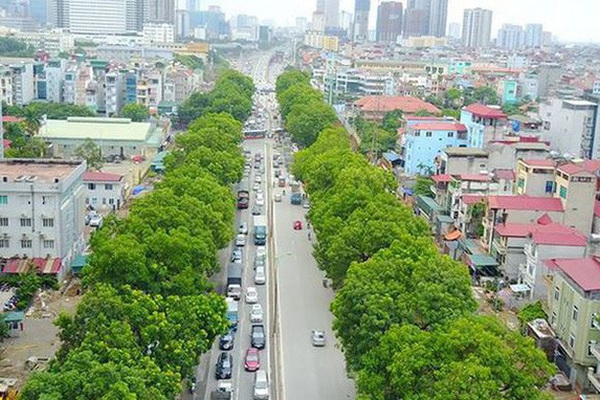 |
|
Vietnam is named among the world’s top 10 countries to live in
|
Within the 41st Session of the United Nations Human Rights Council (UNHRC) in Geneva (Switzerland), Vietnam's National Report on Human Rights under the Third Cycle of the Universal Periodic Review was approved.
The Universal Periodic Review (UPR) is a mechanism established by the UNHRC in 2008. Previously, national human rights reports only focused on information about the implementation of each international convention on human rights that member countries joined. The old mechanism was inadequate. For example, the report did not require all UN members to perform but only those who accepted it; the report was only reviewed by a group of experts; and there was no public dialogue between the group of experts and representatives of member countries.
In other words, the reporting mechanism related to conventions on human rights lacked democracy publicity, transparency and fairness. The UPR mechanism overcomes these limitations. This is a mechanism to publicly review (periodically) the situation of the protection and promotion of human rights of all UN member countries. Under the UPR mechanism, the national report is presented to the UNHRC.
As a rule, reports are sent in advance to members of the UNHRC. At the meeting of the council, the representative of Vietnam focused on clarifying the implementation of 175 recommendations (out of 182) from the second cycle (2014, accounting for 96.2%); reaffirming Vietnam's consistent policy of strengthening protection and promotion of human rights... and updated information on the situation of protection and promotion of human rights in Vietnam before the council.
 |
|
Hanoi - the city of peace - was chosen to host the second US-DPRK Summit
|
The third cycle UPR report emphasized the efforts of the Vietnamese State in building a rule of law state and judicial reform; achievements that guarantee political, civil, socio-economic and cultural rights. In the field of economic rights, this year's report focused on clarifying achievements in poverty reduction and social security provision. Relating to political civil rights, the report clarified that Vietnam always respects the right to freedom of speech, press and access to information, especially with information on the internet. Religious life is protected and assisted by the Vietnamese State.
In an article in Quan Doi Nhan Dan (People's Army) newspaper, Dr. Cao Duc Thai said: Vietnam has accomplished many Millennium Development Goals (MDGs) ahead of time and has initially achieved positive results in implementing the Sustainable Development Goals (SDG); Vietnam's per capita income is constantly increasing, with the income of poor households increasing by 15-20%; and the multi-dimensional poverty rate decreased from 9.88% in 2015 to 7.69% in 2017. Vietnam is one of the countries with the fastest internet growth in the world, with more than 50 million internet users.
According to Dr. Cao Duc Thai, one of the important aspects in achievements in ensuring human rights in Vietnam is the efforts of the Vietnamese State in caring for and ensuring the rights of vulnerable social groups, including women, children and people with disabilities.
 |
|
Vietnam is the first country in the region and second in the world signing the International Convention on the Rights of Children in 1989. Photo for illustration
|
He cited that Vietnam was the first country in the region and the second in the world to sign the "International Convention on the Rights of Children" in 1989. Every year, the Ministry of Labor, War Invalids and Social Affairs coordinates with relevant ministries, branches, organizations and localities in implementing the "Month of Action for Children" in order to mobilize the whole society to protect and care for children and create a safe and healthy living environment for children to comprehensively develop physically, intellectually and spiritually.
Regarding women's rights, since 2010 the National Assembly of Vietnam has enacted 40 laws, with women's rights being fully integrated in the national legal system. In the field of labor employment, the female labor force remains high and reaches 48.3% of the total labor force of the country. The percentage of women who are business managers reached 24.9%.
With respect and assurance of human rights in practice, along with beautiful natural environment, civilized political regime, unique culture, stable society, friendly and open people, Vietnam was ranked in the top 10 countries to live in, up by 8 spots compared to last year.
Viet Chung
 The United Nations Human Rights Commission unanimously decided to approve the results of Vietnam's national report.
The United Nations Human Rights Commission unanimously decided to approve the results of Vietnam's national report.